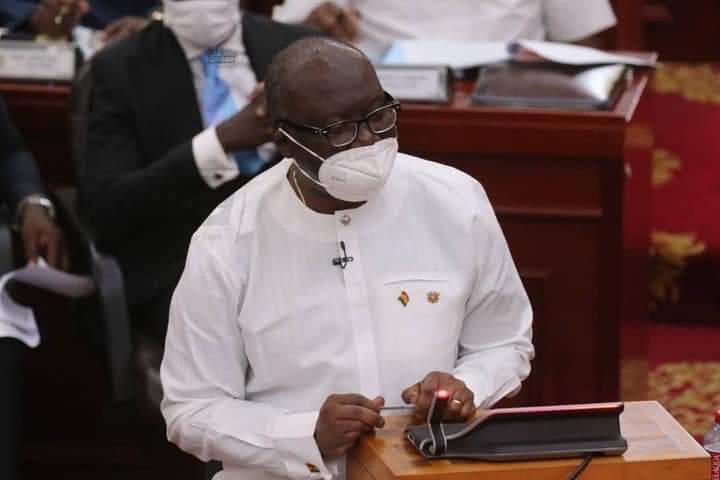Ghana made its 2022 Budget Statement this week, forecasting an overall GDP growth of +5.8% next year on the back of higher industrial and mining output and stronger commodity prices. This is slightly under the IMF’s own forecast of +6.2% for Ghana in 2022.
Without Pecan, oil production will keep declining
But the country is also coming to terms with its inability to boost oil & gas output in the short-term. It forecasts an oil production of 59.51m barrels next year, or a daily average of 163,044 barrels of oil per day (bopd). This contrasts with the 2021 benchmark revenue crude oil output, set at 65.86m barrels, equivalent to a daily average of 177,700 bopd.
Ghana’s projections of crude oil production have actually been revised down until 2025. While its 2021 Budget Statement assumed that output would remain flat and around 60m barrels a year in the short-term, new assumptions released yesterday expects oil production to drop to 55m barrels in 2023 and 2024 and to under 52m barrels in 2025.
Source: Ministry of Finance, PIAC (2016-2020 figures represent actual output)
The development of the offshore Pecan field by Aker Energy is the only project that can boost output in the short-term, but first oil will not be achieved before 2024 at the earliest. Earlier this year, the Parliament of Ghana granted approval for its national oil company GNPC to acquire 37% stake in the Deepwater Tano Cape Three Points (DWTCTP) block from Aker Energy. Hopes are that the transaction could help fast-track the project that has a projected peak production of 110,000 bopd.
“First Oil from the Pecan field is expected in 2024, with a ramp-up of production occurring the following year in 2025,” Ghana said in its 2022 Budget Statement.
Production decline offset by higher oil prices
However, stronger commodity prices will help Ghana increase its oil revenue despite lower output. Ghana now bets on a benchmark oil price of over $60/bbl for the coming years, up from previous estimates of $55.
Source: Ministry of Finance
As a result, and despite decreasing oil output, the country is expecting to collect over $1bn a year from the oil industry from 2022 to 2025. These projections are higher than previous estimates that set oil revenue projections at only about $900m a year until 2024.
Source: Ministry of Finance
For more on Ghana’s industry and the projects driving industry activity, please log into your Hawilti+ research terminal.

